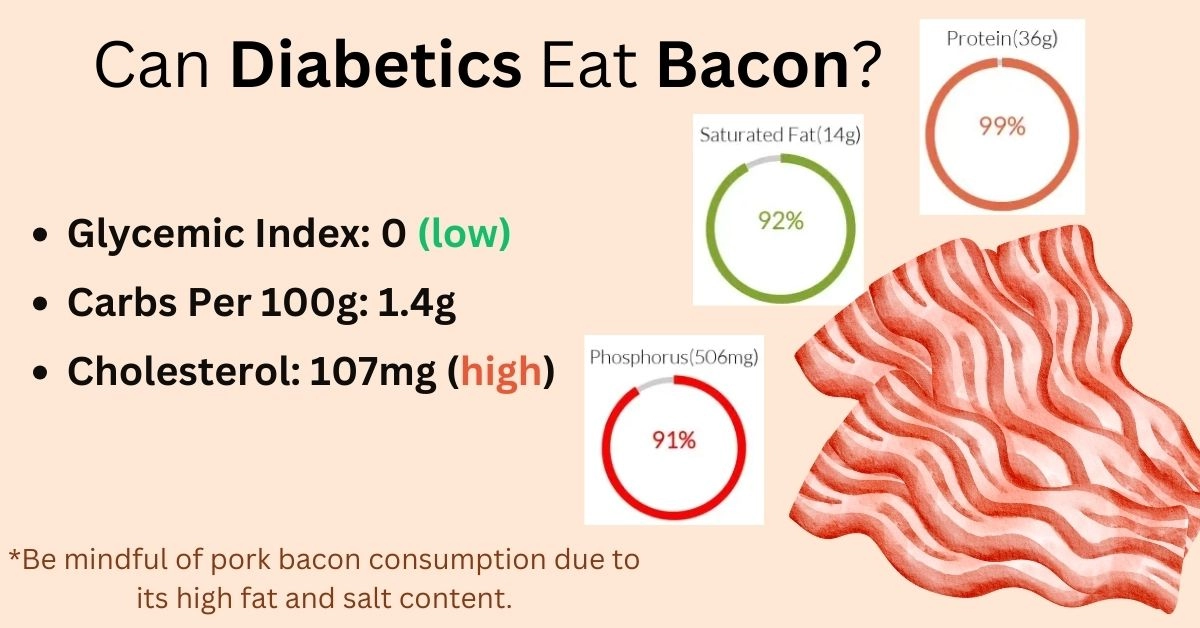Bacon and Diabetes - Is It Good For Diabetics

Introduction
Those who have diabetes should limit or avoid high-fat cuts of meat, such as sausage and bacon because they contain saturated fats. We'll discuss whether bacon is safe for diabetic people.
Glycemic Index and Nutrition
Pork bacon has a very low carb content: 1.28g per 100g. The glycemic index of pork bacon is 0, thus due to its low carb content, its consumption will not quickly raise your blood glucose levels.
However, pork bacon is high in fat and salt content and can cause serious health problems if consumed in excess (1). Pork bacon provides 43.3g of fats and 2193mg of sodium per 100g serving.
So, be mindful of the consumption of pork bacon.
You can visit our Glycemic index chart page for glycemic index values of over 600 foods.
Type-2 Diabetes
Bacon and all pork products are classified as red meats due to their high myoglobin and iron content and pink or reddish color before cooking.
According to a 2020 study, eating just 50g of red meat per day can increase diabetes risk by 11% (2). People with diabetes should avoid or limit their consumption of breaded, fried, and high-sodium meats.
Another study indicates that red meat consumption five or more times per week can increase the risk of type 2 diabetes (3). As a result, researchers suggest that red meat consumption increases diabetes risk independently of dietary patterns.
